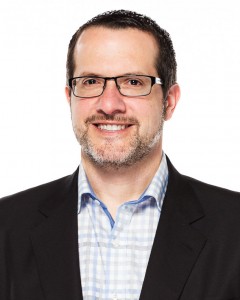 Aaron E. Carroll is President & CEO of AcademyHealth. A nationally recognized thought leader, science communicator, pediatrician, and health services researcher, he is a passionate advocate for the creation and use of evidence to improve health and health care for all.
Aaron E. Carroll is President & CEO of AcademyHealth. A nationally recognized thought leader, science communicator, pediatrician, and health services researcher, he is a passionate advocate for the creation and use of evidence to improve health and health care for all.
Aaron’s research focuses on the study of information technology to improve pediatric care and areas of health policy including physician malpractice, the pharmaceutical industry/physician relationship, and health care financing reform. He is also the co-author of Don’t Swallow Your Gum: Myths, Half-Truths, and Outright Lies About Your Body and Health, Don’t Cross Your Eyes…They’ll Get Stuck That Way!: And 75 Other Health Myths Debunked, and Don’t Put That in There!: And 69 Other Sex Myths Debunked, all published by St.Martin’s Press. More recently, he wrote The Bad Food Bible, How and Why to Eat Sinfully, published by Houghton Mifflin Harcourt. In addition to being a regular contributor to The Upshot at The New York Times, he has written for CNN.com, Bloomberg News, the JAMA Forum, and The Wall Street Journal. He has appeared on Good Morning America, the CBS Evening News, ABC News Now, and The Colbert Report. He’s a regular guest (usually on Monday at 9:30 AM) on Stand Up! with Pete Dominick, which airs on Sirius/XM radio.
He also has a popular YouTube channel called Healthcare Triage, where he talks about health research and health policy. Go check it out!
You are welcome to “friend” Aaron on Facebook or follow him on Twitter, where he talks about a lot more than health policy. You can also email him.
(The views in Aaron’s posts represent his views only. They do not represent the views of Indiana University, any funding agencies or foundations, any organizations, or especially any of his friends or family.)
I declare all potential conflicts of interest to Indiana University. I also declare any that fall under ICJME guidelines to journals.
I also declare any other potential non-financial conflicts in my posts. These are times when I’m doing funded research in the areas I’m writing about, when I personally know an author of a paper I’m writing about, or when any other academic or ideological conflict exists. To be honest, I think those are often far more important than financial conflicts of interest, and that we ignore them at our peril.
